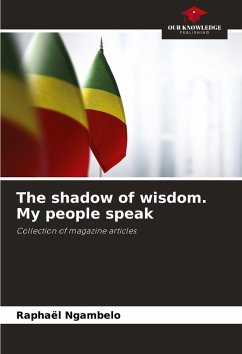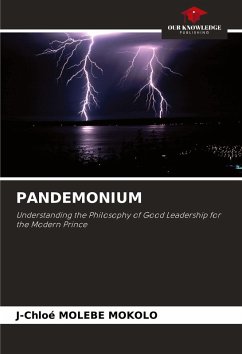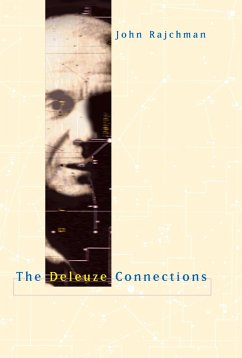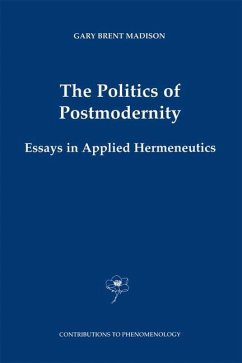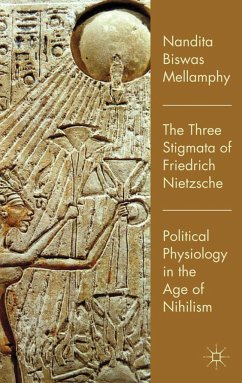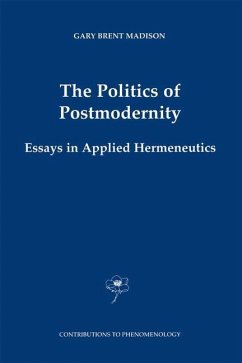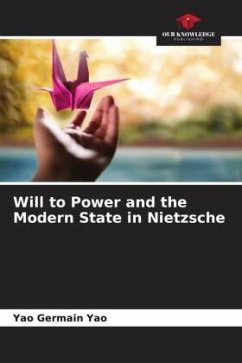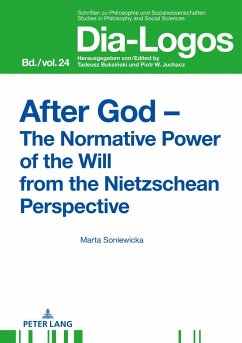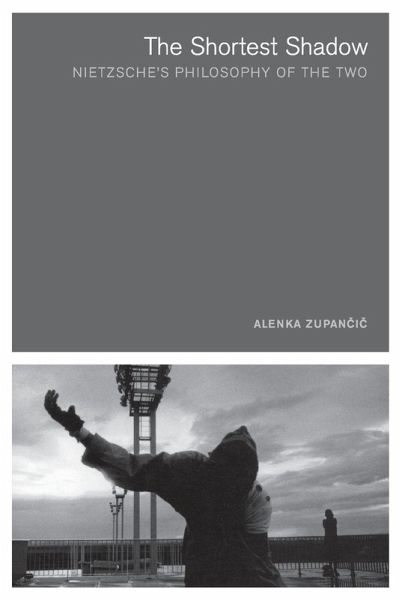
The Shortest Shadow
Nietzsche's Philosophy of the Two
Versandkostenfrei!
Versandfertig in 1-2 Wochen
31,99 €
inkl. MwSt.

PAYBACK Punkte
16 °P sammeln!
Restoring Nietzsche to a Nietzschean context—examining the definitive element that animates his work. What is it that makes Nietzsche Nietzsche? In The Shortest Shadow, Alenka Zupancic counters the currently fashionable appropriation of Nietzsche as a philosopher who was "ahead of his time" but whose time has finally come—the rather patronizing reduction of his often extraordinary statements to mere opinions that we can "share." Zupancic argues that the definitive Nietzschean quality is his very unfashionableness, his being out of the mainstream of his or any time. To restore Nietzsche to ...
Restoring Nietzsche to a Nietzschean context—examining the definitive element that animates his work. What is it that makes Nietzsche Nietzsche? In The Shortest Shadow, Alenka Zupancic counters the currently fashionable appropriation of Nietzsche as a philosopher who was "ahead of his time" but whose time has finally come—the rather patronizing reduction of his often extraordinary statements to mere opinions that we can "share." Zupancic argues that the definitive Nietzschean quality is his very unfashionableness, his being out of the mainstream of his or any time. To restore Nietzsche to a context in which the thought "lives on its own credit," Zupancic examines two aspects of his philosophy. First, in "Nietzsche as Metapsychologist," she revisits the principal Nietzschean themes—his declaration of the death of God (which had a twofold meaning, "God is dead" and "Christianity survived the death of God"), the ascetic ideal, and nihilism—as ideas that are very much present in our hedonist postmodern condition. Then, in the second part of the book, she considers Nietzsche's figure of the Noon and its consequences for his notion of the truth. Nietzsche describes the Noon not as the moment when all shadows disappear but as the moment of "the shortest shadow"—not the unity of all things embraced by the sun, but the moment of splitting, when "one turns into two." Zupancic argues that this notion of the Two as the minimal and irreducible difference within the same animates all of Nietzsche's work, generating its permanent and inherent tension.



